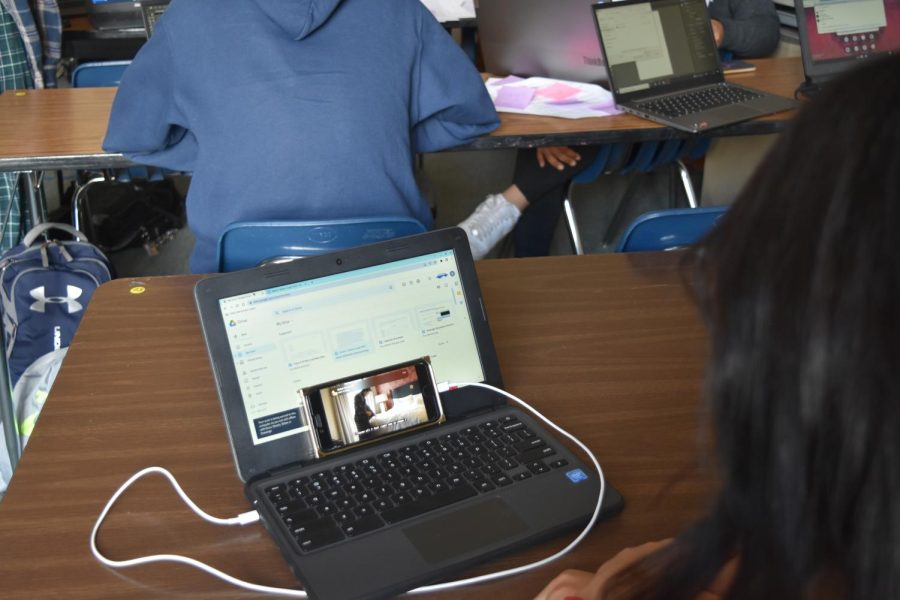Phone Policy at SWHS Sparks Debate
May 18, 2022
Recent changes in the phone policy at Sedro-Woolley High School have been met with both positive and negative opinions. The current phone policy within the school declines student access to phones during class time, CUB academic time, in the hallways and even in the restrooms. Some students see the changes as being favorable while others see them as being too strict.
“Right now it’s a good policy, it’s fair,” said Junior Erin Pierce. “it’s fair, not having your phone out during class time and Cub time because that is learning time and not time to hangout on your phone. That is for lunch time, passing periods, and before and after school,”
Assistant Principal Laura Schmidt believes it comes down to accountability. “I support the policy,” said Schmidt. “With that said, I think the goal is for Students/ young adults to learn when it is appropriate to use and when it is not in a professional setting.”
Some students, however, see the new policy regarding phones as having some flaws.
“I think it’s not enforced very well,” Junior Paige Hupp said. “I think that in some situations students need to be on their phones if they need to attend to something. Staff is trying their best to enforce it, but it’s really not stopping students from being on their phones.” An informal poll posted on social media by The Cub allowed students to vote about their views on phones in school, whether they approved of the policy, disapproved, or didn’t care about the policy. Out of 113 student votes, 71% of voters believe that the phone policy should change and/or become less strict. In other words, many students dislike the new changes.
“Students who use their phones because they need it and get in trouble for it is not ok,” Senior Alyssa Otis says, “During my freshman or sophomore year I was using my phone for Canvas and Skyward and I got in trouble so I think that part should change where students can use their phones to access school related subjects.” Otis says.
With such foggy areas with the policy and how it’s enforced among students, it is hard to find a happy medium. Students share what changes should be done to find a compromise.
“The policy could become more lenient. One time someone in my first period was on their phone because of a family emergency and our teacher took away their phone and gave it to the admin. I think teachers should be more understanding when it comes to certain situations,” Junior Paige Hupp says.
Not only has this issue occurred within our school, but also many districts across America. Kennedy Warneke, a student from Pierce Public School district in Nebraska, wrote an article about students and cell phone use, “Although cell phones can provide somewhat of a distraction during class, they can also be used as an asset to the student by teaching them responsibility and preparing them for future jobs while also giving them the assurance that they are safe.” Warneke writes.
The controversy centers around one question. How do we keep the policy in place but still leave students to have access to their phones when needed?
“The only thing I would say is that all policies should be reviewed each year with a student, faculty, parent, and admin input.” Schmidt says.
The phone policy will always be enforced during school hours, but hope for change is strong, where students and staff can have a clear setting of how phones should be used during academic settings.
“Clear expectations are just easier and smoother for people like staff and students to follow,” Schmidt says, “Also, we have so many instructional minutes on our type of block schedule, we must make them count.”



